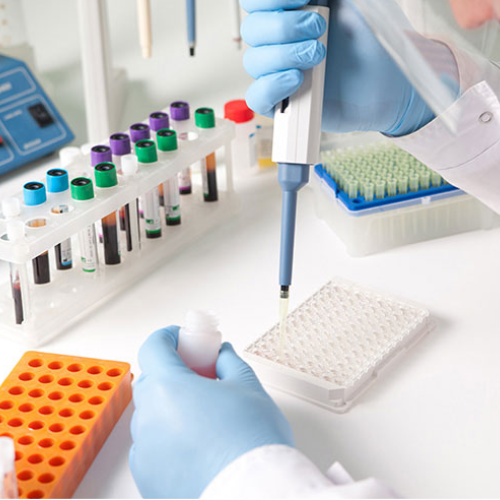PSA Test
PSA Test
- PSA Test or Prostate-specific antigen is a protein secreted by normal and malignant prostate cells in a man.
- for PSA Test no special preparation is required.
- PSA Test acts as a diagnostic marker to detect prostate cancer as well.
- The test is done on fully automatic imported and latest machine at Maurya Labs Purnea, Bihar
- For enlarged prostate TRUS or Ultrasound KUB is also done.
What is PSA Test or Prostate Specific Antigen (PSA) test?
Prostate cancer is the second most common solid cancer in the world. Prostate-specific antigen is a protein secreted by normal and malignant prostate cells in a man. It acts as a diagnostic marker to detect prostate cancer. Therefore, early screening for prostate cancer will prevent morbidity and mortality as prostate cancer often shows symptoms and gets detected in the later stages of the disease.
PSA levels vary naturally throughout the life cycle of a man and maybe high even in men who don’t have prostate cancer and have conditions like benign prostatic hyperplasia (BPH), which is an enlargement of the prostate gland due to obstruction of the flow of urine.

Reported Parameters
- PSA levels between 0 and 2.5 ng/mL, prostate cancer is highly unlikely
- PSA levels 2.5 and 4.0 ng/mL is considered to be in the normal range
- PSA levels 10 ng/mL or higher – High chances of prostate cancer
All The Questions that you might have
- What is PSA Test or Prostate Specific Antigen (PSA) Test ?
- What does the PSA Test measure?
- Why should I do the Prostate Specific Antigen (PSA) test?
- How is the Prostate Specific Antigen (PSA) test done?
Prostate cancer is the second most common solid cancer in the world. Prostate-specific antigen is a protein secreted by normal and malignant prostate cells in a man. It acts as a diagnostic marker to detect prostate cancer. Therefore, early screening for prostate cancer will prevent morbidity and mortality as prostate cancer often shows symptoms and gets detected in the later stages of the disease.
PSA levels vary naturally throughout the life cycle of a man and maybe high even in men who don’t have prostate cancer and have conditions like benign prostatic hyperplasia (BPH), which is an enlargement of the prostate gland due to obstruction of the flow of urine.
The PSA Test or Prostate-Specific Antigen test is a simple blood test that measure the level of PSA in the blood.
Your doctor may suggest you for a PSA test you are having following symptoms:
- Urinary frequency
- Painful urination
- Blood in the urine or semen
- Urinary urgency or incontinence
- Pelvic/back pain
The PSA test is a simple blood test with no need for fasting before the test. The blood sample can be taken by the phlebotomist at a pathology lab.







